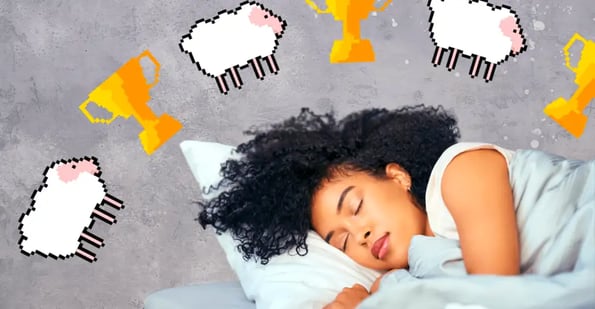If counting sheep hasn’t been helping you fall asleep lately, you might want to consider a spreadsheet.

No, seriously. According to The Wall Street Journal, people are using wearable tech to measure and track their sleep:
- The Oura Ring, which retails for $300 plus a monthly membership, uses infrared LED lights to track biometrics.
- The Whoop wristband requires a $250 annual membership and uses an app to track bodily stats.
- The Apple Watch has a sleep app that lets users track time spent in each sleep stage.
And today’s sleepyheads are using all sorts of tools to score more shut-eye and boost their numbers:
Mouth taping, sleep masks, blackout curtains, and smart alarm clocks are popular on social media — the hashtag #sleep has amassed 37.6B+ views on TikTok alone.
Where there are stats…
… there are people keeping score. So it’s not surprising that sleep tracking is being gamified.
Pokemon Sleep tracks sleep and rewards players with higher scores and more Pokemon depending on how they snooze. The app, released earlier this summer, has already been downloaded 10m+ times.
There’s also Sleepagotchi, an app that rewards players for sticking to their sleep goals, which has raised $3.5m in funding.
Too much of a good thing
While prioritizing healthy sleep habits and getting enough rest are vital to staying healthy, too much pressure on sleep can have the opposite effect.
Researchers have already coined the term “orthosomnia” to describe the “obsessive pursuit of optimal sleep metrics.”
And all that obsessing over sleep can lead to some serious anxiety, which — you guessed it — can make it hard to fall asleep.
.jpg?width=48&height=48&name=IMG_2563%20(1).jpg)
